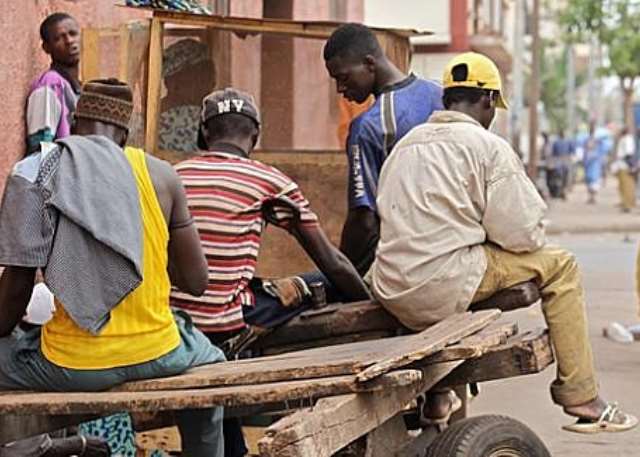
 Kenyan graduates forced to make ends meet/HANDOUT
Kenyan graduates forced to make ends meet/HANDOUT“If you told me four years ago that my campus years would fly by this fast, I wouldn’t believe you. I can’t believe I just graduated this year.”
Claude Omondi, a recent graduate from Strathmore University, shares this sentiment with The Star, a nostalgic smile on his face.
"From infancy, I wasn’t one of those children who wondered where the next meal would come from. If I needed pizza on the weekend, all I had to do was ask. Things changed drastically after both my parents died in a car accident. My father’s family threw me out, purely out of greed. I had to rely on friends who were willing to house me. I never imagined I’d be this desperate for a job and without any parental support,” he says.
According to the Commission for University Education, approximately 600,000 students were enrolled in Kenyan universities and tertiary institutions in the 2023/2024 academic year.
Each year, around 50,000 students graduate, but less than 40% transition smoothly into the workforce.
Simon Ng’ang’a, a graduate of Mount Kenya University, says he felt abandoned after graduation.
“After my only parent died in high school, I almost dropped out. A family friend agreed to sponsor me. But after graduation, they cut all ties. Calls went unanswered. I’ve tried looking for engineering jobs, but menial jobs are all I can rely on now,” he shares.
A 2023 KNBS report showed that youth aged 20–29 form the highest share of unemployed Kenyans, with over 1.6 million jobless, a large portion being recent graduates. Most are stuck in a loop of job applications, unpaid internships, or casual labour.
According to the Ministry of Education, several graduate internship and youth empowerment programs, such as the Public Service Internship Programme (PSIP) and Ajira Digital, aim to bridge this employment gap. However, uptake remains low, and many graduates are unaware or ineligible for such opportunities.
Simon’s experience mirrors that of Jemimah Mukasa, a recent nursing graduate from the University of Nairobi.
“Being a rural girl from Butere, Kakamega, I was determined to study in Nairobi. I wanted to pursue biochemistry, but my parents insisted on nursing, thinking it had better job prospects. Every day was a mental battle. The only thing that kept me going was the belief that I’d get a job quickly. A year later, I’m still searching. I’m heading back home this month—maybe I can help on the farm,” she says.
But not all stories end in despair. Desire Nafula, a Kenyatta University graduate, beat the odds.
“I saw my elder sister struggle after graduating, so I started a crocheting business in my second year. By the time I finished school, I already had loyal clients. The business now supports me as I search for a job,” she says.
Vincent Maraga, a graduate of the Kenya Medical Training College, had a smoother path.
“I had deferred a media course and switched to radiology. After graduating, I was terrified I wouldn’t get hired. Two months later, I got an internship at Aga Khan Hospital, and after that, a one-year contract,” he says.
Jane Mwangi, a human resource officer at a Nairobi-based tech firm, says many graduates lack soft skills and practical experience.
“We receive hundreds of applications, but few stand out. Many are technically trained but struggle with communication, teamwork, or problem-solving,” she explains.
According to Mrs. Tabitha Mirithu, a counsellor at the University of Nairobi, financial instability can have serious mental health consequences.
"Many graduates experience extreme depressive episodes. Some even entertain suicidal thoughts. Others, backed into a corner, may turn to crime or risky behaviours,” she warns.
Universities such as Kenyatta, Moi, and UoN have set up mental health support centres and peer-led wellness programs to help graduates and students cope with transition stress. However, demand often outweighs available resources.
So what can be done? Abdi Nura, a financial expert at Thakrar Financial Consultants, advises students to start small businesses or crafts while still in school.
"Take advantage of training and networking opportunities. Learn to save. Financial discipline is a survival tool once school ends. These small steps make a big difference,” he says.
While the paths of graduates like Claude, Simon, and Jemimah reveal a bleak reality, others like Desire and Vincent offer a glimmer of hope.
As more young Kenyans leave university gates into an uncertain world, their survival hinges on more than just a degree—it requires grit, support, and a national commitment to make education truly worth the investment.













